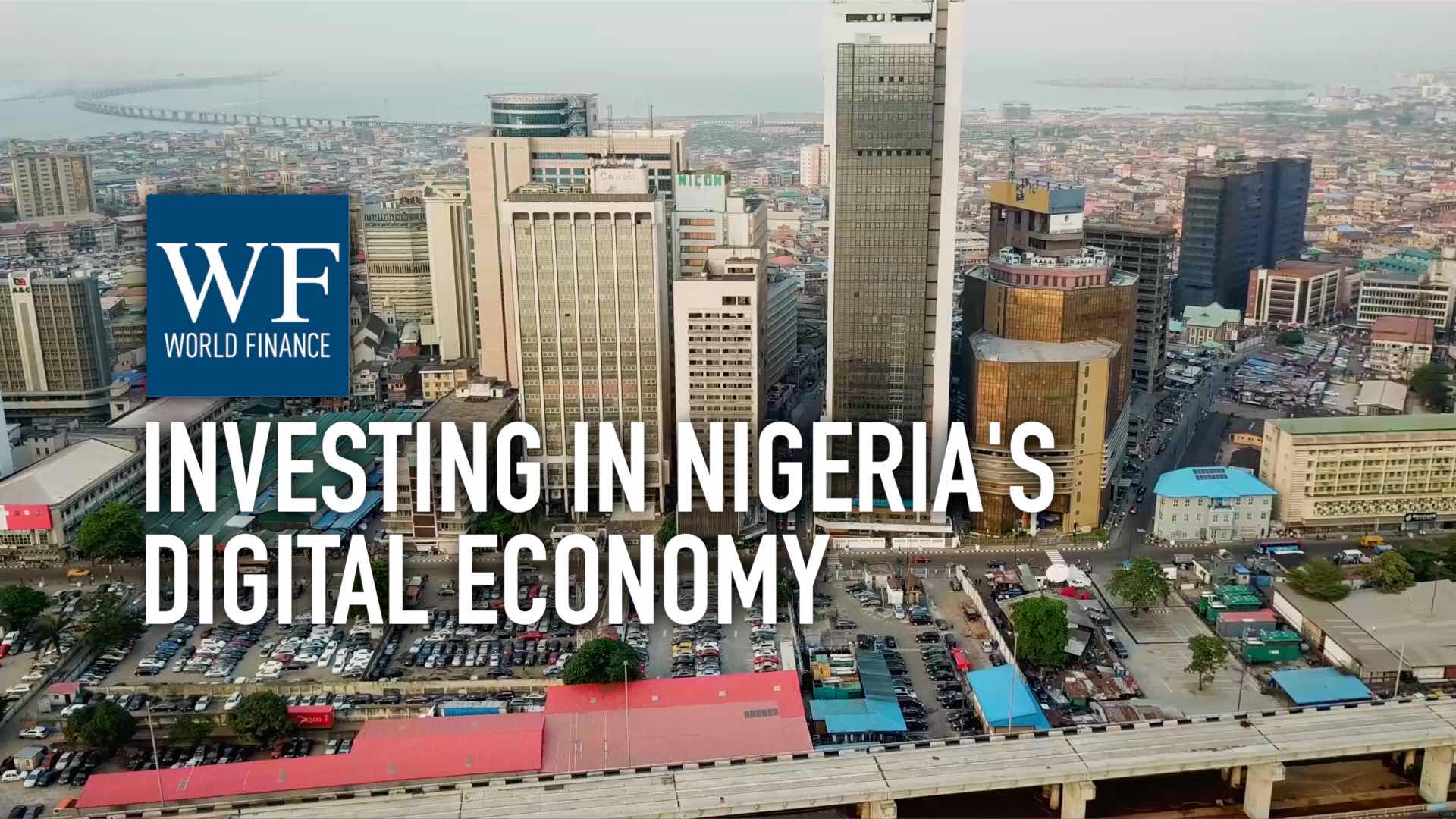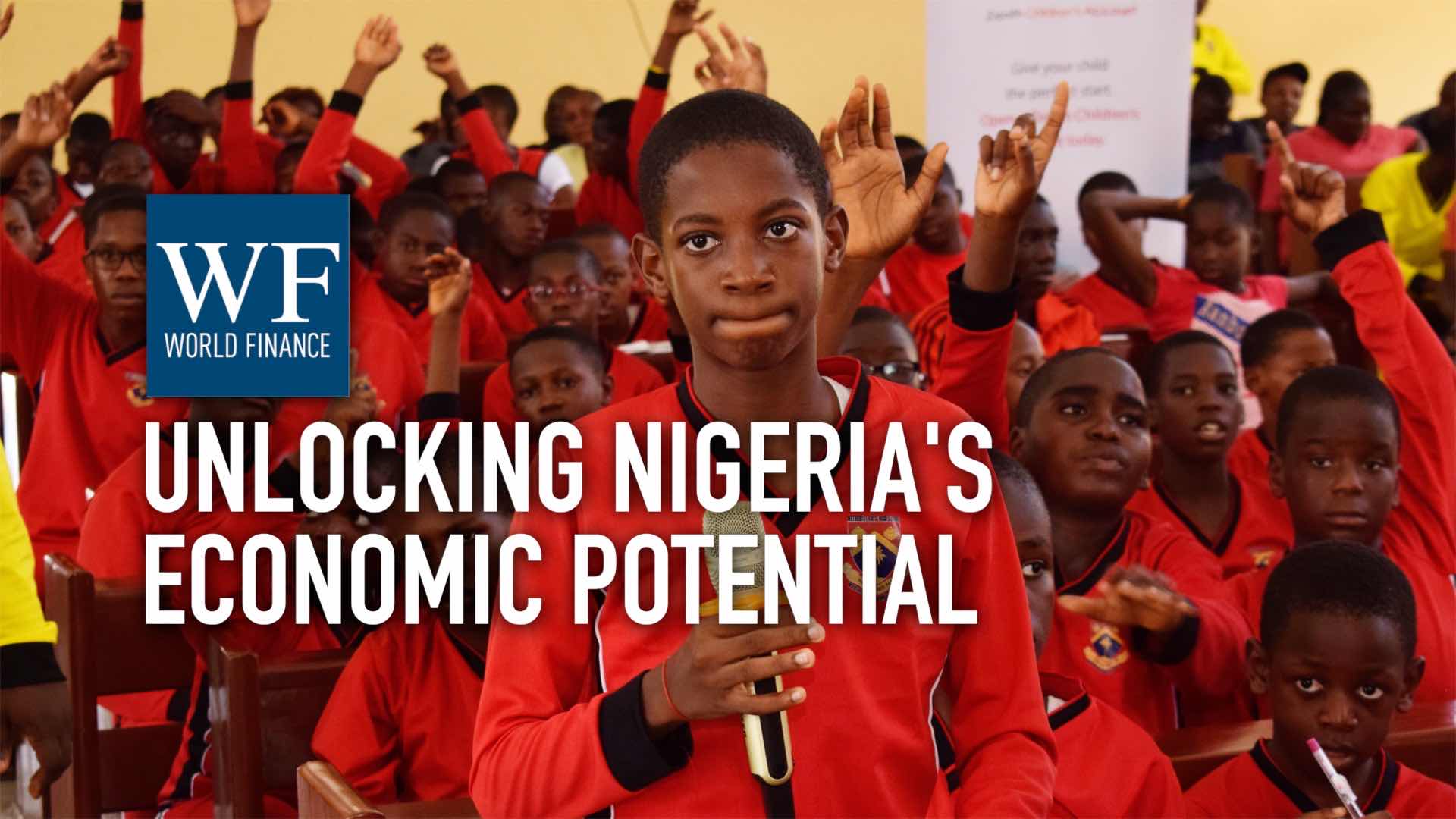From 65th to 4th: how Access Bank climbed the ranks of Nigeria’s banks
Founder and CEO Herbert Wigwe plots the path to becoming the world's most respected African bank
Related:
Transcript
In 2002, two Nigerian entrepreneurs acquired a small commercial bank, ranked 65th out of the 89 banks in the country. Today that bank is the fourth largest commercial bank in Nigeria. Herbert Wigwe, group managing director and CEO of Access Bank, tells his story. From assembling a management team that would help foster the institution’s credibility, to establishing targets on sustainability, financial inclusion, and female empowerment, he explains the strategy that has helped transform the bank. His aspiration? To make Access Bank the world’s most respected African bank, and to help the people of Nigeria expand and diversify their economy.
World Finance: In 2002, two Nigerian entrepreneurs acquired a small commercial bank, ranked 65th out of the 89 banks in the country. Today that bank is the fourth largest commercial bank in Nigeria. With me to tell his story: Herbert Wigwe, group managing director and CEO of Access Bank.
Take me back to day one. What’s your first priority when you begin a transformational project like this?
Herbert Wigwe: The first and most important thing for us was to put together a strong, credible, and competent management team. You need to have people who first of all, have the same value system. You also need to find those who are somewhat entrepreneurial. But most importantly, you need to have those who have the ingredients to understand the aspirations of the enterprise, and the vision of the business.
We had to build up the brand, we had to look for institutions to partner with, to give more credibility to the institution. And we realised that the pace of growth was such that we had to pay specific attention to issues around risk management and compliance. So that was another aspect that we had to look at.
The great thing was that, given our background as professionals, and where we had worked, and what we had done before: we had large institutions like the IFC come and rally behind us, to support us in creating what I can only refer to as another oasis of sanity, because they saw young people coming out of Africa, out of Nigeria, who would build world class institutions.
World Finance: So you have the partnerships, you have the grand strategy for the bank. But how do you get your workforce united behind your vision?
Herbert Wigwe: The first thing is to share it with them. It’s not a vision that comes from the top down; you have to get everybody to believe in it, and to feel it, and to live it. People must share the vision of the bank. People must share the values of the bank. That’s where you get everybody energised, to believe in what we’re truly trying to do.
Initially it may appear to be just routine, but the more they do it, the more they share the values – before any presentation – it sticks to their brain. Anything they’re doing, they’re asking themselves: how does this contribute to becoming the world’s most respected African bank?
Once you have people thinking in the same direction, it makes it very easy for you to determine where the institution is going, and to align all the forces in one direction.
World Finance: As you say, your current target is to become the world’s most respected African bank. Tied into that you have targets on sustainability, on empowering women in your workforce. Tell me more about the work you’re doing there.
Herbert Wigwe: A lot of work is being done, and particularly with respect to issues of sustainability and gender empowerment. And this started in 2005. At that time most people were not paying attention to issues around sustainability in the continent, not to talk of Nigeria.
First of all we started the gender empowerment programme, where we worked with the IFC to provide loans to women. And the idea was to help support the girl-child, as well as female entrepreneurs.
In 2012 we took it to a totally different level, and we set up what we refer to as the women banking group, to support all aspects of female businesses. So whether it’s the female professional, or it’s an aspiring female entrepreneur, we started supporting them all through.
Now, most of the SMEs in Africa are owned and run by women. And by excluding them, it’s affecting the overall size of the economy. You’d be amazed at how much impact it has. And those things are so important, because you get a woman to understand: you’ve trained an entire family.
We are determined to ensure that we lead the aspects of financial inclusion, as far as women are concerned. We are determined to ensure greater gender balance and equality between women and men. And we’re determined to increase the amount of support we give to female entrepreneurs.
World Finance: This seems to be really core to your personal values: helping the people of your country.
Herbert Wigwe: Absolutely. When we started our careers, we had people who built us, who supported us, who trained us. One of the things we realised is that as we have a large number of educated Nigerians, they don’t have the opportunity to create the businesses that they want to create.
In sub-saharan Africa about 50 percent of the economy is outside of the formal sector. What this serves to do is to bring most of this into the formal sector. The more you support SMEs, the more you support a growth in your economy. So it sits pretty well with some of the things the central bank is doing, but as market participants, we need to actually take the charge, teaming up with all of our colleagues to help drive financial inclusion across the entire system.
World Finance: We’re filming this in December 2016, a time of reflection and review of the year. But we’re just weeks away from 2017, so: what’s your agenda, what are you hoping to achieve next year?
Herbert Wigwe: I think it’s going to be a very interesting year. The Nigerian economy is going through its own challenges, but I believe that in 2017, given the various efforts the government is coming up with, the economy should begin to turn around.
Now, for us as an institution, we need to identify the opportunities in 2017 for us to achieve our own aspirations. But in all of that we need to support the government in terms of diversifying the economy, to ensure that in the future Nigeria does not suffer from the same kind of problem that has gotten us the way it is, which is over-reliance on oil.
So identifying opportunities in exports. Identifying opportunities that can lead to local creation of some of the items that we need to import on a sustainable basis, are areas that we basically need to focus on. We need to work together to create the much more diversified economy that will basically continue to maintain us as the pride of Africa, the largest economy in the continent.
World Finance: Herbert Wigwe, thank you very much.
Herbert Wigwe: Thank you very much Paul.

 Zenith Bank is ‘at the forefront of encouraging Nigeria’s upcoming digital economy’
Zenith Bank is ‘at the forefront of encouraging Nigeria’s upcoming digital economy’ From zero to hero: with support for SMEs to MNCs, Zenith is unlocking Nigeria’s potential
From zero to hero: with support for SMEs to MNCs, Zenith is unlocking Nigeria’s potential
